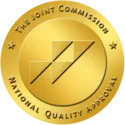When someone gets sober from drug and alcohol use, it can feel like the hardest part is over. But for many, the real challenge begins after the substance is gone from their life.
Addiction replacement, sometimes referred to as cross-addiction, is when a person takes on new habits or compulsive behaviors to cope with the absence of their drug of choice. These substitutes may seem harmless (or even healthy) on the surface. But when these substitute activities are used to numb emotions, avoid healing, or chase a high, they can sabotage recovery.
In essence, addiction replacement is the act of transferring dependency from one substance or activity to another. The brain, still wired to seek dopamine-fueled rewards, latches onto something else to satisfy that craving for stimulation or escape. Without addressing the root causes of addiction, the behavior persists in a new form.
Definition of Addiction Replacement
Addiction replacement occurs when an individual replaces the rush, escape, or relief they once got from drugs or alcohol with a different behavior or substance. This is often a subconscious process.
The brain is biologically designed to pursue reward pathways. After addiction to a substance rewires these systems, the absence of that familiar stimulus leaves a void. Instead of injecting heroin, a person might binge eat to cope with difficult emotions. Instead of alcohol, they may throw themselves into nonstop work. The behavior is new, but the cycle of compulsivity and avoidance remains the same.
These replacement addictions may not immediately raise red flags. In fact, society may praise or reward them, such as when a person works long hours or becomes hyper-disciplined about fitness. But without balance or healthy intention, these activities become new dependencies that reinforce the same emotional patterns as substance use.
Common Examples of Addiction Replacements
Addiction replacement can manifest in many different ways. Some are immediately recognizable as risky, while others may hide under the guise of productivity or wellness.
Food is one of the most common addiction replacements. After quitting drugs or alcohol, some people begin to rely on the comfort and stimulation of sugar, fast food, or the act of binge eating to manage stress or emotional discomfort. This can lead to weight fluctuations, health issues, and shame — all of which perpetuate the guilt-avoidance cycle of addiction.
Excessive gambling, risky sexual encounters, dangerous driving, or even adventurous activities like skydiving can become substitutes for the high once felt from substances. The adrenaline provides a temporary rush. But it can also reinforce compulsive and impulsive behavior patterns.
“Retail therapy” is often seen as a lighthearted way to cope with stress, but for someone in recovery, it can easily spiral into compulsive spending. Chasing the temporary positive feelings of a new purchase, maxing out credit cards, breaking budgets, or hiding financial behaviors from loved ones mimics the secrecy and destruction of active addiction.
Whether it’s poker, sports betting, or digital casinos, the act of gambling provides unpredictable dopamine spikes that mimic the effects of substance use. It’s one of the most destructive addiction replacements due to its potential to devastate both financial and emotional wellbeing.
Some individuals replace drug highs with sexual escapism. Constant porn consumption or engaging in compulsive sexual behavior can lead to emotional detachment, secrecy, and shame. Like drug use, it often serves as a distraction from deeper emotional pain.
Working long hours and pushing oneself to work beyond healthy limits may look like ambition from the outside. But for some people, it becomes an addiction. When work becomes the only place someone feels control, validation, or relief, it may be masking unresolved trauma or emotional discomfort that the person previously used drugs to avoid.
While physical health is important, there’s a line where exercise becomes compulsive. If someone becomes panicked at the thought of missing a workout or uses fitness as a way to avoid feelings, it may indicate that they’ve transferred their addiction to this new hobby.
In today’s highly connected world, another common replacement for drugs is excessive phone use or social media scrolling. The instant gratification of receiving likes, answering messages, or seeing entertainment can become a soothing distraction that mimics the escape a person once found in substances. Hours can disappear each day without awareness, which can lead to sleep disruption, anxiety, and low self-esteem from comparison.
Many people in early recovery turn to caffeine to boost energy and mood. While a morning coffee isn’t usually harmful, an overreliance on energy drinks or constant caffeine consumption can lead to health problems, sleep disturbances, and anxiety, all of which undermine overall wellness.
The Danger of Addiction Replacement
While addiction replacement may appear safer than relapsing into drug or alcohol use, the underlying problem remains unresolved. Someone may believe they are in recovery because they’re no longer using. But in reality, the emotional and psychological wounds driving the behavior haven’t healed.
Key risks of addiction replacement include:
- Delayed Emotional Healing: Addiction replacement stalls the overall healing process in addiction recovery. The new addiction becomes another mask that hides the underlying causes of the original substance use.
- Physical and Financial Harm: Many replacements can have serious consequences, such as obesity from binge eating, debt from shopping or gambling, and physical injuries from excessive exercise.
- Relationship Strain: Many replacement addictions are isolating. They often involve secrecy, compulsivity, and emotional detachment that may push loved ones away.
- Higher Risk of Relapse: Unresolved emotional issues can increase vulnerability to relapse. Many people who replace addictions find themselves circling back to their original drug of choice or even experimenting with other drugs.
- Mental Health Deterioration: Replacement addictions often go unnoticed until they create significant distress. As they grow more intense, they can cause symptoms of depression, anxiety, or obsessive thinking to resurface or worsen.
Ultimately, sobriety is not the same as recovery. Recovery isn’t just about eliminating addictive substances from a person’s life. It includes healing the emotional, mental, and spiritual dimensions of a person’s life. Addiction replacement can trick people into thinking they’re doing well when they’re still deeply entrenched in the cycle of addiction.
How to Avoid Addiction Replacement

Addiction replacement doesn’t happen because someone is weak. It happens because the brain and body are still wired for survival and reward-seeking. That’s why avoiding it requires intentional strategies and a person being willing to engage with their own recovery.
Recovery from addiction is not a solo journey. Whether through therapy, peer support groups, or treatment programs like at Eagle Creek Ranch Recovery, reaching out for help is the first step in addressing deeper issues of addiction. Accountability and guidance are essential for lasting recovery.
Short-term abstinence from drugs is not enough. Work to create a long-term recovery plan that includes consistent check-ins, self-inquiry, and defined goals. Let go of the idea that you’ll ever be “done” with healing, because recovery is an ongoing process.
Instead of replacing one addiction with another, work to create a life filled with balance and meaning. Prioritize sleep, nutrition, meaningful social connections, and joyful activities that don’t hinge on performing normality or escapism.
Many people struggling with addiction have underlying mental health conditions, such as anxiety, depression, or PTSD. Working with a licensed therapist or mental health professional can help you manage mental health symptoms and reduce the desire to self-soothe with drugs or replacement behaviors.
Addiction doesn’t start in a vacuum. Trauma, grief, abandonment, or low self-worth often lie at the heart of an addiction. Engage in therapy or trauma-informed care that helps you explore origins of your self-destructive behavior and heal from within.
Mindfulness practices like meditation, breathwork, or journaling can help increase self-awareness and interrupt the automatic behaviors that may lead to addiction replacement. These tools can increase the ability to observe urges without acting on them.
Many replacement addictions flourish in chaos or unstructured environments. Building a routine and setting clear boundaries around time, finances, and personal energy can provide personal strength that’s essential for lasting recovery.
Receive Help for Addiction at Eagle Creek Ranch Recovery
If you or a loved one fears falling into the trap of addiction replacement during recovery, you’re not alone. At Eagle Creek Ranch Recovery, our holistic treatment approach addresses the full scope of addiction. We help people to heal their emotional, mental, physical, and spiritual selves so that addiction does not maintain a hold on their life. Located in the scenic tranquility of Nampa, Idaho, our recovery center provides a safe and supportive space for long-term transformation.
Don’t settle for surface-level change. Heal the whole you. Contact Eagle Creek Ranch Recovery to learn more about our programs and how we can help you achieve lasting recovery.

Clinical Director
Kendall Maloof is the clinical director at Eagle Creek Ranch Recovery. She is a licensed marriage and family therapist and has held multiple leadership roles before settling here at Eagle Creek Ranch Recovery. Kendall received her master’s degree in marriage and family therapy from the Chicago School of Professional Psychology in 2016. Her career in mental and behavioral health began in 2014 when she took up internships in both the nonprofit and for profit sectors. She interned at multiple reputable companies, such as The Living Success Center and 449 Recovery in California.
In 2019, Kendall became the clinical director of Sunsets Recovery for Woman, a dual diagnosis program in southern California. Kendall is a natural leader. She has an incredible ability to problem solve and stay calm in any situation. Kendall never fails to show up when she is needed, and her calm demeanor makes her team and clients feel at ease. Eagle Creek Ranch Recovery is proud to have Kendall as our clinical director.



